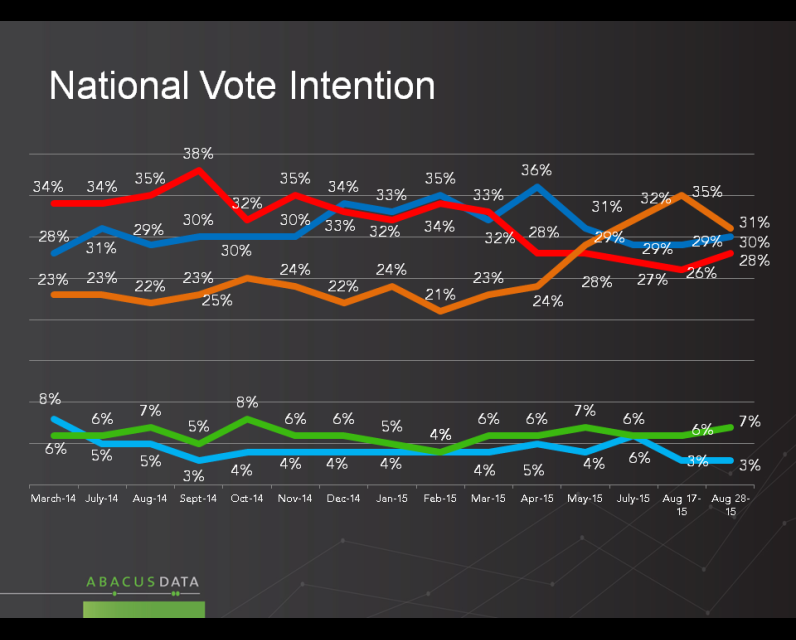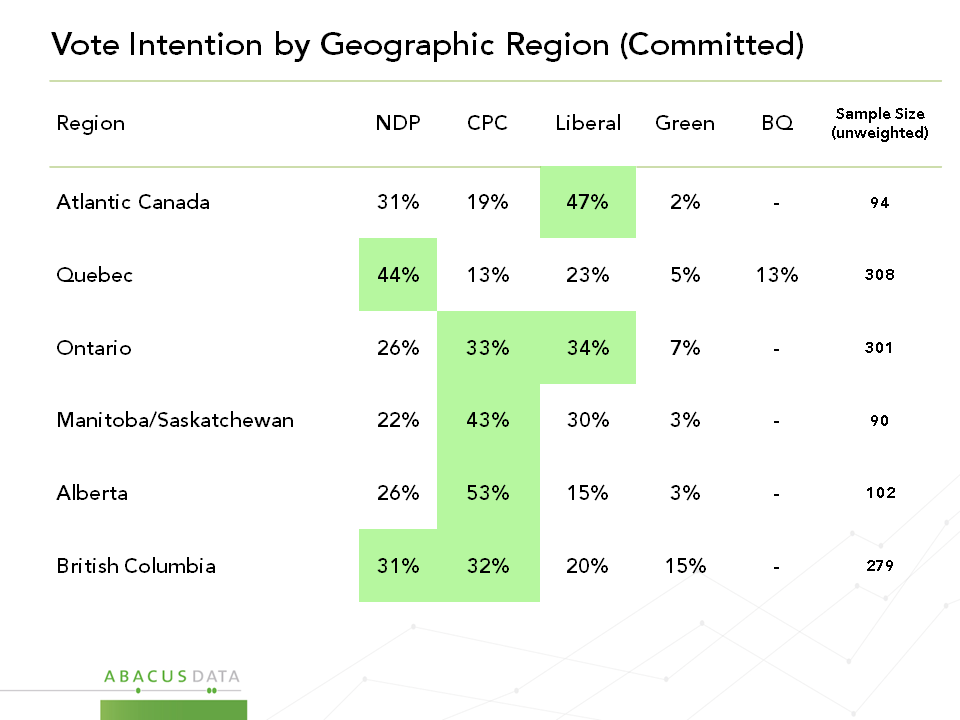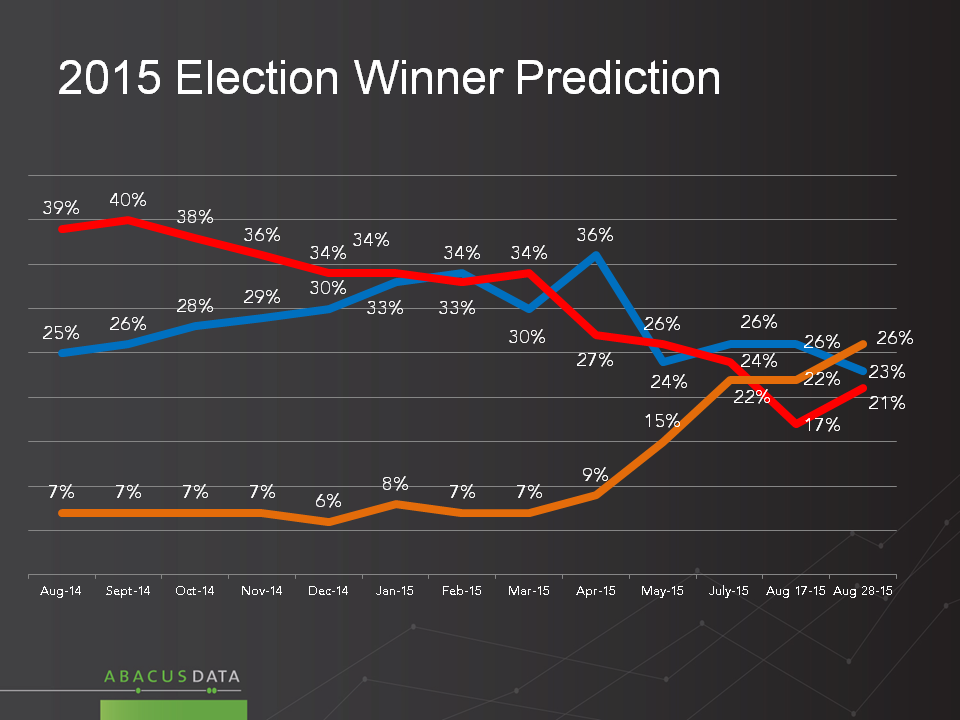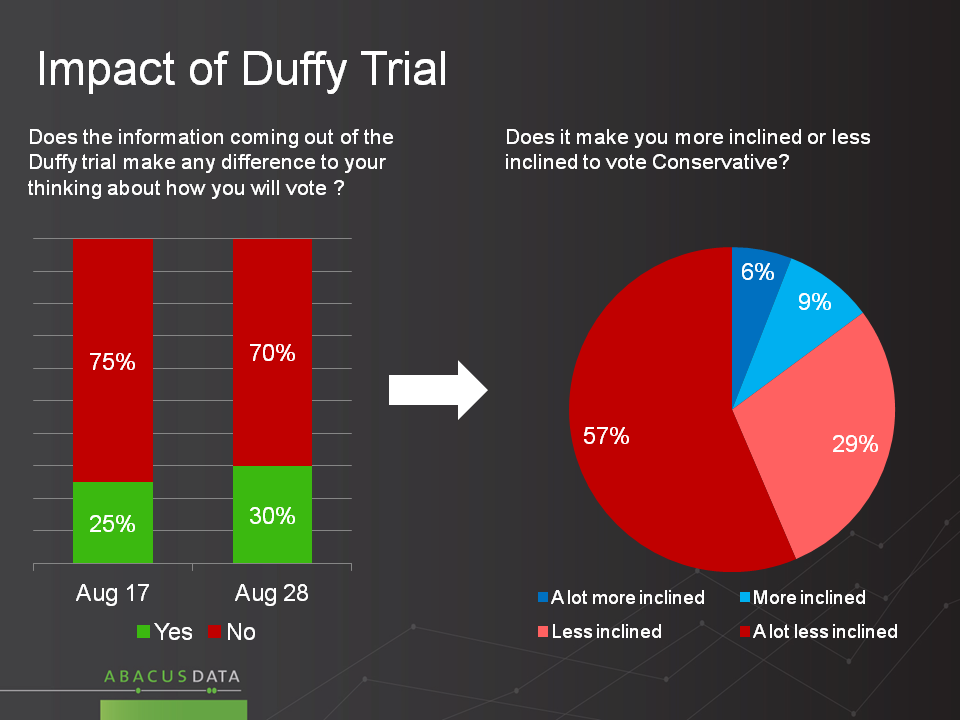Unpublished Opinions
Having conducted research for some of North America’s leading corporations and advocacy groups, we deliver global research capacities with the attention to detail and focus of a boutique firm. We have the capacity to conduct surveys, focus groups (on- and offline), membership surveys, elite and stakeholder consultations, and build online research communities. Our team combines the experience of our Chairman Bruce Anderson, one of Canada’s leading research executives for two decades, with the energy, creativity and research expertise of CEO David Coletto, PhD. We all value integrity, hard work, and creativity believing good research insights come from an intense focus on our clients, rigourous methods, and occasionally challenging convention. Whether it is a public opinion study on a challenging issue or consumer research on likelihood to recommend, our team has the experience and energy to deliver deep insights on-time, on-budget, and with creative perspective. - See more at: http://abacusdata.ca/about/#sthash.euNpekw1.dpuf
Race narrows as NDP support dips

Our latest national voting intention numbers reveal a tightening race as the NDP has lost a little ground. If the election were tomorrow, 31% say they would vote NDP (down from 35% two weeks ago), 30% would vote CPC, and 28% would vote Liberal.
The Liberals picked up 2 points since our last poll and the Conservatives are up 1 point, both within the margin of error. The three-point gap is the closest we have seen since May, when the NDP began to climb in support following the election of NDP Premier Rachel Notley in Alberta.
Some softening of NDP support appears in several regions: Atlantic Canada (-5) Quebec (-3), Ontario (-6) and BC (-3). The NDP leads in Quebec, with a 21-point advantage over the Liberals; the margin was 27 points in our last survey. In Ontario, we see the Liberals at 34%, the Conservatives 33% and the NDP 26%. In BC, the NDP (31%) and CPC (32%) are locked in a tie, followed by the LPC (20%) and a strengthening Green Party (15%).

71% Not Fully Decided
In this wave, 29% say they have made up their mind who they will vote for and their decision won’t change. Two weeks ago, 31% were firm.
58% Really Want Change, 15% Really Don’t
A clear majority (58%) of those surveyed really want a change in government, while 15% are adamantly opposed to change. The number of people adamantly in favour of change is higher in recent waves than it was earlier in the year.
Another 18% say “it would be good to have change but it’s not really all that important” meaning a total of 76% would prefer a different government. Another 9% say “it would be better to continue with the Conservatives, but it’s not really all that important”, meaning that the total number who prefer the Conservatives to continue in office is 24% in this wave.
No clear consensus on which party will win.
Asked which party will win this election, 26% say the NDP, 23% say the Conservatives and 21% say the Liberals. In the last 12 months, all three parties have been on top on this question, this week marking the first time a plurality picked the NDP as the most likely victor.
These national numbers mask some differences among those living in different regions. In Ontario, 20% think the NDP will win, compared to 25% for the Conservatives and the Liberals, while in Quebec, 42% think the NDP will win, compared to 17% for the Liberals. Only 14% of Quebecers think Mr. Harper will win a fourth term at this point in time.

Pools of Accessible Voters
The NDP enjoys access to the largest potential pool of voters, as 62% say they would consider voting NDP, followed by the Liberals at 55% and the Conservatives at 42%. Put another way, the NDP have the potential to add 31 points more support, the Liberals 27 more points and the Conservatives only 12. The room for growth for the Conservatives is smaller than for the other parties, thus it is more imperative that their voters are highly motivated to turn out to vote.
Today, 28% say their choice will be between the NDP and the Liberals, a number which has risen.
Duffy Trial
A total of 25% say they were following the Duffy trial closely, up from 22% in the last wave. Worth noting, in Ontario 30% are following the trial closely, compared to 20% in Quebec. Attentiveness is highest at 37% in Atlantic Canada.
In this wave, 7% believe Mr. Duffy acted appropriately, and 61% improperly, unchanged from our last wave. 8% think Nigel Wright acted properly, 53% improperly. 14% think the PM acted properly, 49% improperly.
These results represent a net 2-point improvement for Mr. Duffy and a 3-point deterioration for Messrs. Harper and Wright compared to our last wave.
Three in ten voters say the Duffy trial will affect their vote - up 5 points since our last wave. Of those, 15% say it makes them more inclined to vote CPC, while 85% say it has the opposite effect.
Perhaps most important is the effect of the trial on those who are leaning for or against wanting change in this election. Among those who are inclined but not passionately for change, 20% say the Duffy trial makes them less likely to vote CPC. Among those who are softly inclined to want the Conservatives back in office, 15% say the Duffy trial makes them less inclined to vote CPC.

The Upshot
If more evidence was needed that it is premature to draw conclusions about how this election will turn out, this wave of results reinforces that point. The NDP enjoys the largest potential support, but also has been attracting the challenging scrutiny that comes with front-running status.
The numbers show that any party can win this election, and that Canadians themselves are quite uncertain which party will come out on top, something that could make for a more engaging election and possibly even a higher turnout on Election Day.
The Duffy trial has been a cloud hanging over the Conservatives, making those inclined to want change to feel even more inclined that way, and some of those who had been inclined to want a fourth Conservative mandate to feel less motivated to support Mr. Harper.
A sizeable proportion of Conservative leaning voters believe that the Prime Minister acted inappropriately. This means that every time he maintains that he did nothing untoward, he is saying something only a quarter of his supporters believe. An equal number don’t believe him, and half put themselves on the fence.
Whether the Duffy trial remains a factor in this campaign is uncertain, now that the trial has is recessed until after the election. For the Conservatives, who have the smallest potential pool of voters, they must now redouble their efforts to motivate and energize supporters, while trying to weaken the broad instinct towards change.
For the Liberals and the NDP, the situation is clear: neither can win without winning votes that the other is counting on or hoping for.
Methodology
Our surveyed, commissioned by Abacus Data, was conducted online with 1,500 Canadians aged 18 and over from August 26 to 28, 2015. A random sample of panelists was invited to complete the survey from a large representative panel of over 500,000 Canadians, recruited and managed by Research Now, one of the world’s leading provider of online research samples.
The Marketing Research and Intelligence Association policy limits statements about margins of sampling error for most online surveys. The margin of error for a comparable probability-based random sample of the same size is +/- 2.6%, 19 times out of 20. The data were weighted according to census data to ensure that the sample matched Canada's population according to age, gender, educational attainment, and region. Totals may not add up to 100 due to rounding.



Comments
Be the first to comment